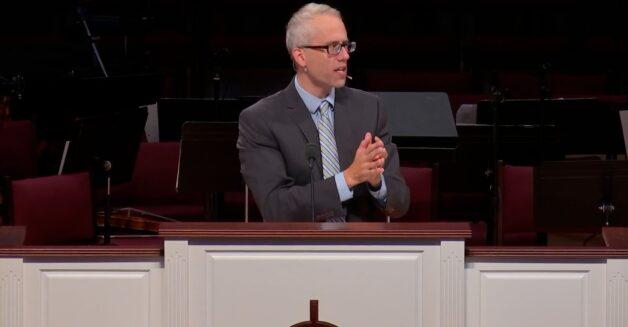
“You shall have no other gods before me” (Exodus 20:3).
Nine commandments proscribe (or prescribe) certain actions for God’s people. The first commandment, however, is unique in that it regulates a certain relationship between God and his people. Biblical morality is predicated upon the reality that there is only one God, and he must be worshiped to the exclusion of all others.
So what does that look like?
In the Institutes of the Christian Religion, Calvin insists that obedience to the first commandment means we owe God four things (II.viii.16).
- Adoration. We render God worship and pay homage to his majesty.
- Trust. We rest happy and secure in God’s power and perfections.
- Invocation. We seek out God’s promised aid in our time of need.
- Thanksgiving. We recognize God as the fount of every blessing.
That’s a helpful checklist, not only for obeying the first commandment, but also for a number of expressions of devotion to God. What should we do in prayer? Try adoration, trust, invocation, and thanksgiving. What should we find in our corporate worship services? Plan for adoration, trust, invocation, and thanksgiving. What can we talk about with our friends in the car, our family at the dinner table, or our kids at bedtime? How about adoration, trust, invocation, and thanksgiving?
I’ve also found it useful to turn Calvin’s first commandment obligation into four questions for personal reflection.
1. Whom do I praise?
Obviously, it’s not wrong to encourage others or enjoy their gifts. But where do I place my marvel? What do I find truly amazing? What ultimately excites me most? What am I most likely to sing about, shout about, and celebrate?
2. Whom do I count on?
We sing the song “I Need Thee Every Hour,” but functionally who or what is the Thee in our heart of hearts? Are we counting on football or ice cream or alcohol or a boyfriend or a child or a new job to meet our needs?
3. Whom do I call for?
To be sure, God normally works through means, which means we call the plumber when our drain is clogged and call the doctor when an artery might be clogged. Yet when it comes to daily petition and constant prayer—in our mundane disappoints to our most desperate moments—where do we really think our help comes from?
4. Whom do I thank?
No matter what difficult season we may be in, there are far more blessings than we realize. How do we say thank you for sunny days and needed rain and sleeping babies and holding hands and mile-high nachos? The object of our gratitude reveals the focus of our faith.
The questions are not meant to make you (or me) despair of ever obeying the first commandment, but if they can point us in the direction of true devotion, then Calvin would be pleased. More importantly, so would God.
Kevin DeYoung is the senior pastor at Christ Covenant Church (PCA) in Matthews, North Carolina and associate professor of systematic theology at Reformed Theological Seminary.



